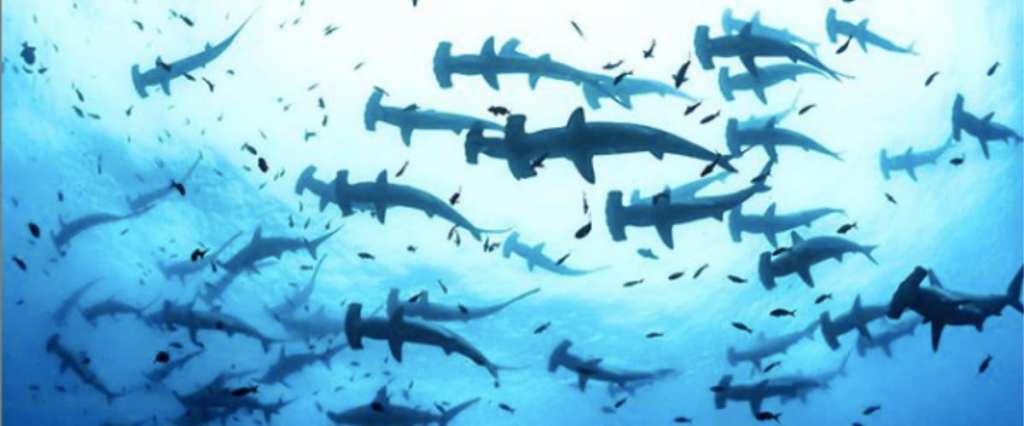Trending Now
As if you need another sign of the impending apocalypse, crew on an Irish research vessel spotted a smooth hammerhead shark (Sphyrna zygaena) just off the coast – the first sighting of that species in their waters, ever.
The apex predators can reach up to 16 feet in length but typically prefer warmer, even tropical, waters. Though they have been spotted previously as far north as Britain, the last sighting was back in 2004.
https://www.instagram.com/p/B0oXpw4AuqW/
Scientists fear that the Celtic Sea sighting is yet another sign of rising ocean temperatures and expect more of the same in the future, says Simon Boxall, an expert at the U.K.’s National Oceanography Center.
“It could be a very lost hammerhead shark, but more likely it is because our oceans are getting warmer. There’s is no reason why more shark species like hammerheads and great whites can’t exist in our waters.”
https://www.instagram.com/p/B03ipKOpJcZ/
The oceans are getting warmer. The Environmental Protection Agency has published data that shows sea temperatures have risen, on average, 0.13 degrees F every decade and a report from the UK Government Office for Science predicts temperatures will continue to rise, reaching 2.2 to 5.8 degrees higher by 2100.
Marine life is impacted in myriad ways, from a drop in shark populations in warmer climates – like around the Great Barrier Reef – to new and bigger populations arriving in regions that had previously been too cool for them.
https://www.instagram.com/p/B03lSH5pWIV/
This 2018 study predicts that at least 10 new species of sharks will migrate into UK waters by 2050, including the blacktip shark, the goblin shark, and…the hammerhead.
“I am sure these species are more common than people realize, it’s just that they haven’t been seen,” Boxall commented. “But it doesn’t mean we are going to get a mass invasion of hammerhead sharks.”
At least, not yet.






